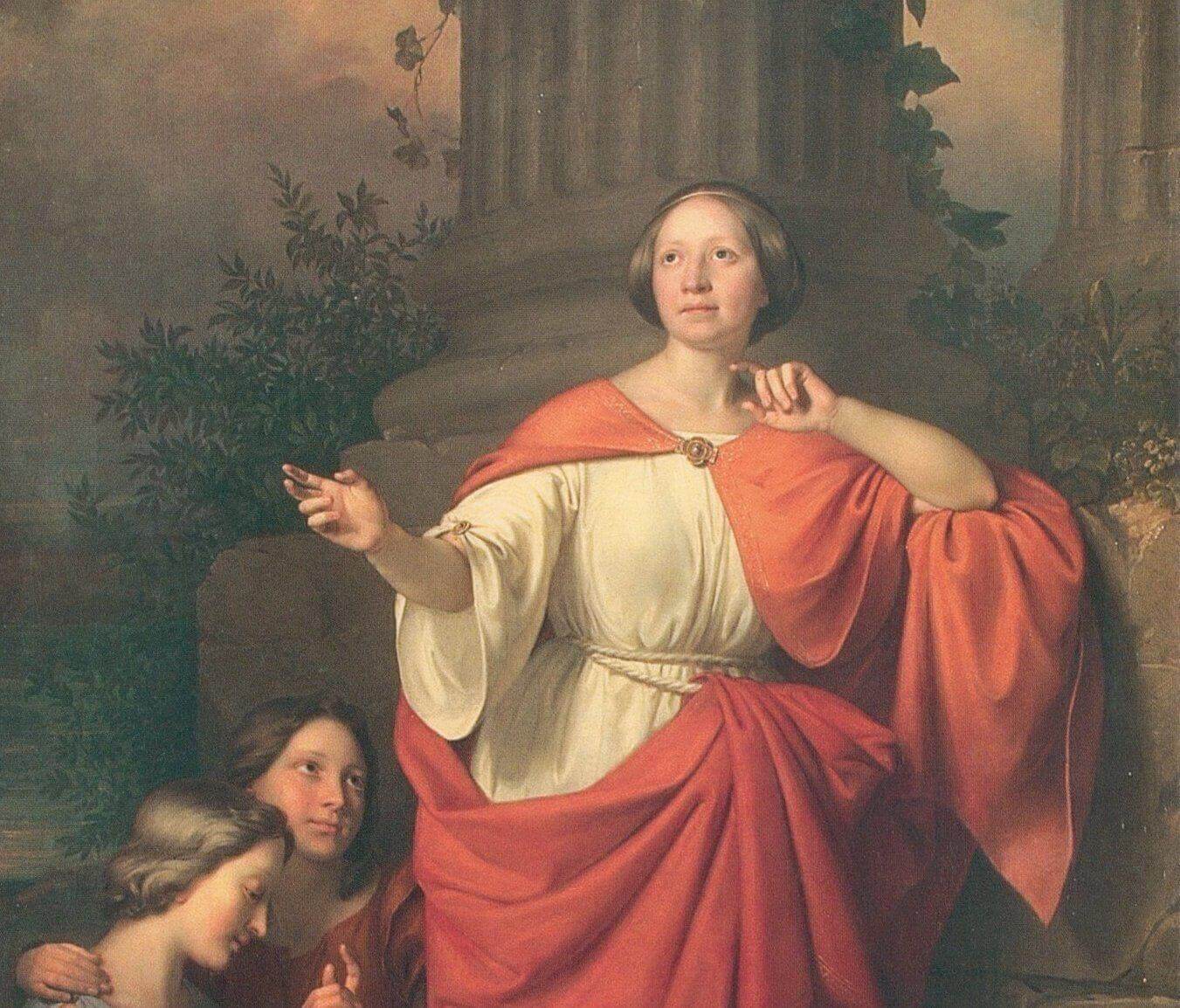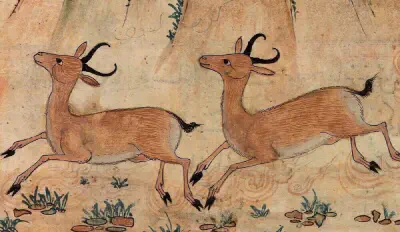Life
Our knowledge of Diotima is so sparse that many people have concluded that she was not an historical figure, but instead a literary invention. Diotima appears as a character in Plato’s Symposium, where Socrates refers to her as “a woman of Mantinea—a woman who was wise in many things.” And our knowledge of her doesn’t extend far beyond this.
Diotima’s name means “honoured by Zeus.” Her name suggests that she was a priestess, and according to Plato’s Symposium, she was also a philosopher and one of Socrates’s teachers. This would put her life in the fifth century before the common era.
Fiction and History
Because the only contemporary account that mentions her is Plato’s, doubt has been cast on her historicity. Nevertheless, there is now an increasing agreement that the balance of evidence suggests she was indeed a real person. And as the philosopher Zoi Alliozi has argued, “fictional or not, her voice had a powerful influence on the arguments made by Socrates and therefore the history of philosophy as we know it.” Even fictional philosophers can have an influence on future generations.
Philosophy
There are two ideas attributed to Diotima in the Symposium that have had an influence on the direction of Greek philosophy. The first is her distinctive teachings on love, and the second is her idea of metaxy or the “in-between”.
The Art of Love
In the Symposium, Plato says that Diotima taught Socrates “the art of love” — an ambiguous phrase. As she was teaching him this art, Socrates made the claim that love was a great and powerful god. Diotima challenged him. Socrates was astonished by the challenge: but surely, he protested, love can’t be mortal. Diotima conceded the point, but then she said something interesting. Love, she argued, is neither immortal nor mortal, but somewhere in between. Love is an intermediary because it binds together the mortal and the immortal, and this is why love has the power to lead mortals to more enduring truths.
In the Symposium, this idea is developed through the image of a ladder of love. First, we might love an individual body. Through this love, we come to recognise that all bodies are worthy of love. And through recognising this, we begin to see that all souls are worthy of love. After this, we see that the social institutions and customs that are put in place by those with loveable souls are themselves worthy of love (this move from talking about the soul to talking about public institutions always strikes me as quite odd). Next, we come to see that knowledge itself is something we should love. And finally — at the top of the ladder — we end up loving love itself.
The In-Between
One reason that Plato is interested in this is because it says something about philosophy. After all, philosophy is the love of wisdom. And the fact that philosophy is not wisdom, but instead the love of wisdom, makes it an intermediary between knowledge and ignorance.
In the story in the Symposium, Diotima asks Socrates if anything exists that occupies the middle position between knowledge and ignorance. At first Socrates can’t think of anything. But then Diotima proposes judgement as something that sits in this in-between position. Judgement is not knowledge because when we judge something to be true, this isn’t the same as knowing it to be true. But judgement is not ignorance either because good judgement often hits the mark of truth, “and how could what hits the truth be ignorance?”
Philosophy, like judgement, may be not quite the same as wisdom; but neither is it full-blown ignorance. It is wise, after all, to want to become wise. So anybody who wants to become wise cannot be totally ignorant. But if you want to become wise, by definition you are not yet wise. So you are between ignorance and wisdom, or ignorance and knowledge, driven by love to become wiser.
“In that case, Diotima, who are the people who love wisdom, if they are neither wise nor ignorant?”“That’s obvious,” she said. “A child could tell you. Those who love wisdom fall in between those two extremes…” —Plato, Symposium
Diotima’s idea of the in-between, or metaxy wasn’t limited just to ignorance and wisdom. She called into question all kinds of binary oppositions, including between good and evil, beautiful and ugly, divine and mortal. Given how little we have to go on, it is hard to fully reconstruct Diotima’s philosophy; but it seems that for her most of the interesting stuff happens in these in-between spaces, in the middle-ground. And the kinds of distinctions that philosophers make between good and evil ignore how connected and entangled these oppositions are.
Signals Through the Wall
The 20th Century Catholic philosopher, Simone Weil, uses a metaphor to explain this idea of metaxy. She says in her book Gravity and Grace that ‘Two prisoners whose cells adjoin communicate with each other by knocking on the wall. The wall is the thing which separates them, but it is also their means of communication. It is the same with us and God. Every separation is a link… the essence of created things is to be intermediaries.’
However, we make sense of this idea of metaxy, it is a reminder that our human lives are often complex and fuzzy, and experience maps badly onto boundaries like good/bad, beautiful/ugly, wise/ignorant and so on. Diotima reminds us that most of the interesting stuff happens in the places in-between.
Further Resources
Books
Zoi Alliozi’s piece appears in the brilliant The Philosopher Queens, edited by Rebecca Buxton and Lisa Whiting (Unbound Books 2020).
There’s a great essay on Diotima, and on the case for her as an historical individual, in chapter six of A History of Women Philosophers: Volume 1 Ancient Women Philosophers 600 B.C. — 500 A.D. edited by Mary Ellen Waithe (University of Minnesota Press 1987).
Simone Weil’s Gravity and Grace is published in English by Routledge (2002).
Plato’s Symposium is available in multiple editions, as well as online.
Online Resources
There’s a brief post over on the History of Philosophy Without Any Gaps asking “Was Diotima Real, and Does it Matter?”
The BBC has a nice video on Diotima’s ladder.
Image: The Polish poet and novelist Jadwiga Łuszczewska, posing as Diotima. By Józef Simmler (1823-1868). Courtesy Wikimedia Commons.



